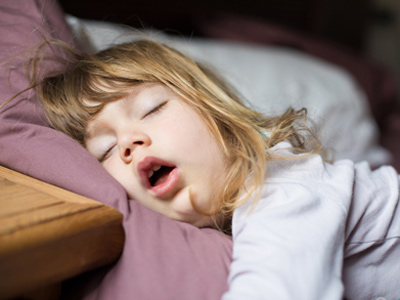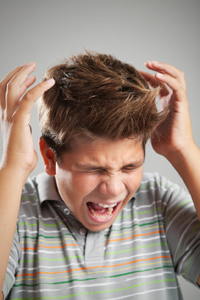How much Sleep do Children Need?
The amount of sleep children need varies between ages and individuals. Toddlers might require 11 hours each night and 3 during the day while teenagers need about 9. Getting enough rest is essential for their physical and mental development

Understanding Children's Sleep Needs
Just like food, water, and oxygen, sleep is a fundamental necessity. We all know how we feel after a poor night's rest – irritable, sluggish, and not much fun to be around! For children, sleep is even more vital. Adequate rest every night is crucial for their physical and mental development. Babies, children, and teenagers require more sleep than adults, but how much exactly? And, what are the consequences of insufficient sleep? This guide will provide insights into how much sleep children need, how to identify if your child isn't getting enough, and, most importantly, what can be done about it.
LEARN ABOUT THE BENEFITS OF LEARNING THROUGH QUIZZES
Recommended Sleep Durations for Different Age Groups
While adults are often said to require about 8 hours of sleep a night, we all know that this isn't universally accurate – some of us can function well on 6 or 7 hours, while others need 9 or 10. Children exhibit similar variation. However, for a rough estimate of the average amount of sleep children need, here's a table based on the NHS's age-specific recommendations:
| Age | Daytime | Night |
|---|---|---|
| 1 week | 8 hours | 8.5 hours |
| 4 weeks | 6.5 hours | 8.5 hours |
| 3 months | 4.5 hours | 8.5 hours |
| 6 months | 3 hours | 10.5 hours |
| 9 months | 2.5 hours | 11 hours |
| 12 months | 2.5 hours | 11 hours |
| 2 years | 1.5 hours | 11.5 hours |
| 3 years | 0.5 hours | 11.5 hours |
| 4 years | - | 11.5 hours |
| 5 years | - | 11 hours |
| 6 years | - | 10.75 hours |
| 7 years | - | 10.5 hours |
| 8 years | - | 10.25 hours |
| 9 years | - | 10 hours |
| 10 years | - | 9.75 hours |
| 11 years | - | 9.5 hours |
| 12-13 years | - | 9.25 hours |
| 14-17 years | - | 9 hours |
This table serves as a rough guideline, so there's no need to worry if your child's sleep duration slightly deviates from the average. For example, my 5-year-old daughter only sleeps for 10 hours per night despite my best efforts!
Are Children Getting Enough Sleep?
Research shows that, over the last two decades, children's average sleep duration has declined. Teenagers, in particular, have been affected due to the allure of gaming consoles and mobile phones.
A study involving the sleeping habits of more than a quarter of a million children between 1991 and 2012 revealed that at the start, 72% of adolescents were getting 7 or more hours of sleep per night, but this percentage dropped to 63% by the study's end.
Identifying Insufficient Sleep
Recognizing signs of insufficient sleep in your child is essential, as it can lead to various problems. Look out for these tell-tale signs:
- Difficulty getting out of bed in the morning
- Oversleeping on weekends or during school holidays
- Daytime drowsiness
- Irritability
- Easily becoming upset
The last two items on this list could be indicative of other issues, such as depression or anxiety. However, the first three are almost certainly due to insufficient sleep. If your child exhibits any of these signs, inadequate sleep may be the cause.
FIND OUT WHY KIDS LOVE OUR WEBSITE
Common Sleep Disruptors
Various factors can disrupt sleep. While some individuals suffer from sleep disorders, most sleep issues result from poor "sleep hygiene." Sleep hygiene refers to the good habits that help us fall asleep and stay asleep throughout the night. Here are some common culprits that may hinder your child's sleep:
- Caffeine – A stimulant that should be avoided for at least 6 hours before bedtime
- Late-night physical activity – Strenuous activities before bedtime can stimulate the body, making it harder to fall asleep
- Diet – Heavy or spicy meals in the evening can hinder sleep
- Screen time – Exciting TV shows, films, video games, and the light from screens can keep the mind alert and prevent sleep
- Light – Even small amounts of light from TVs or mobile phones can confuse the brain and disrupt sleep
- Noise – External noises can disrupt sleep, so reduce volume from TVs, computers, and conversations in other rooms
- Daytime naps – Sleeping for more than half an hour during the day can hinder night-time sleep
- Stress – Stress-related issues can contribute to insomnia
Promoting Better Sleep for Your Child
If you want to help your child get better sleep, you should focus on promoting good sleep hygiene. Here are several habits that can help:
- Exercise – Daily physical activity positively impacts sleep
- Sunlight – Exposure to natural light helps regulate sleep rhythms
- Relaxation – Engage in calming activities before bedtime, like reading or taking a warm bath
- Bedtime routine – Consistency in bedtime activities can signal the body that it's time to sleep
- Avoid stimulants – Steer clear of caffeine and nicotine close to bedtime
- Light control – Ensure the bedroom is dark, and remove sources of light such as screens from the bedroom
- Earplugs or white noise – Use earplugs or white noise generators to block external sounds
- Temperature control – Keep the bedroom at a comfortable temperature, ideally between 15°C and 20°C
Common Sleep Disorders
If your child has good sleep hygiene but still struggles with sleep, an underlying sleep disorder may be the cause. There are various sleep disorders, some more common than others. Here are a few sleep disorders you may encounter and their symptoms:
- Insomnia – Difficulty falling or staying asleep, with or without an apparent cause
- Parasomnia – Involves abnormal movements or sensations during sleep, such as sleepwalking, sleep-talking, and night terrors
- Hypersomnia – Excessive sleepiness during the day and oversleeping at night
- Sleep-disordered breathing – Abnormal breathing patterns during sleep, including snoring and sleep apnoea
- Circadian rhythm sleep disorder – Difficulty sleeping at typical times due to issues with the body's internal clock
If you suspect your child has a sleep disorder, consult with your GP.
Impact of Sleep on Children's Health and School Performance

Insufficient sleep affects both mental and physical health, especially in children whose bodies and brains are still developing. Here are some health conditions, major and minor, that can result from chronic sleep deprivation:
- Obesity – Inadequate sleep is associated with weight gain, as it affects the hormone responsible for feeling full
- Diabetes – Severe sleep deprivation can lead to type 2 diabetes by affecting glucose processing
- Weak immune system – Sleep-deprived individuals are less capable of fighting infections
- High blood pressure – Sleep loss can increase heart rate and blood pressure, raising the risk of heart attacks and strokes
Insufficient sleep also impacts children's school performance. Tired children may have poor attendance due to oversleeping and minor illnesses, and they may experience the following:
- Poor memory – Inadequate sleep impairs memory retention
- Lack of attention – Fatigue hinders concentration and learning
- Misbehaviour – Irritability due to tiredness can lead to behavioural issues
- Poor creativity – Abstract thinking, essential for various subjects, is compromised by sleep deprivation
If your child isn't getting enough sleep, it can result in unhappiness, reduced performance at school, and health issues. We hope this article assists you in addressing the challenges of insomnia. Good luck!
Explore EQ's Knowledge Bank for answers to parents' questions on education, schooling, and raising happy, healthy, and safe children. We provide information and advice on a wide range of educational topics and parenting concerns. It's a valuable resource well worth checking out.



